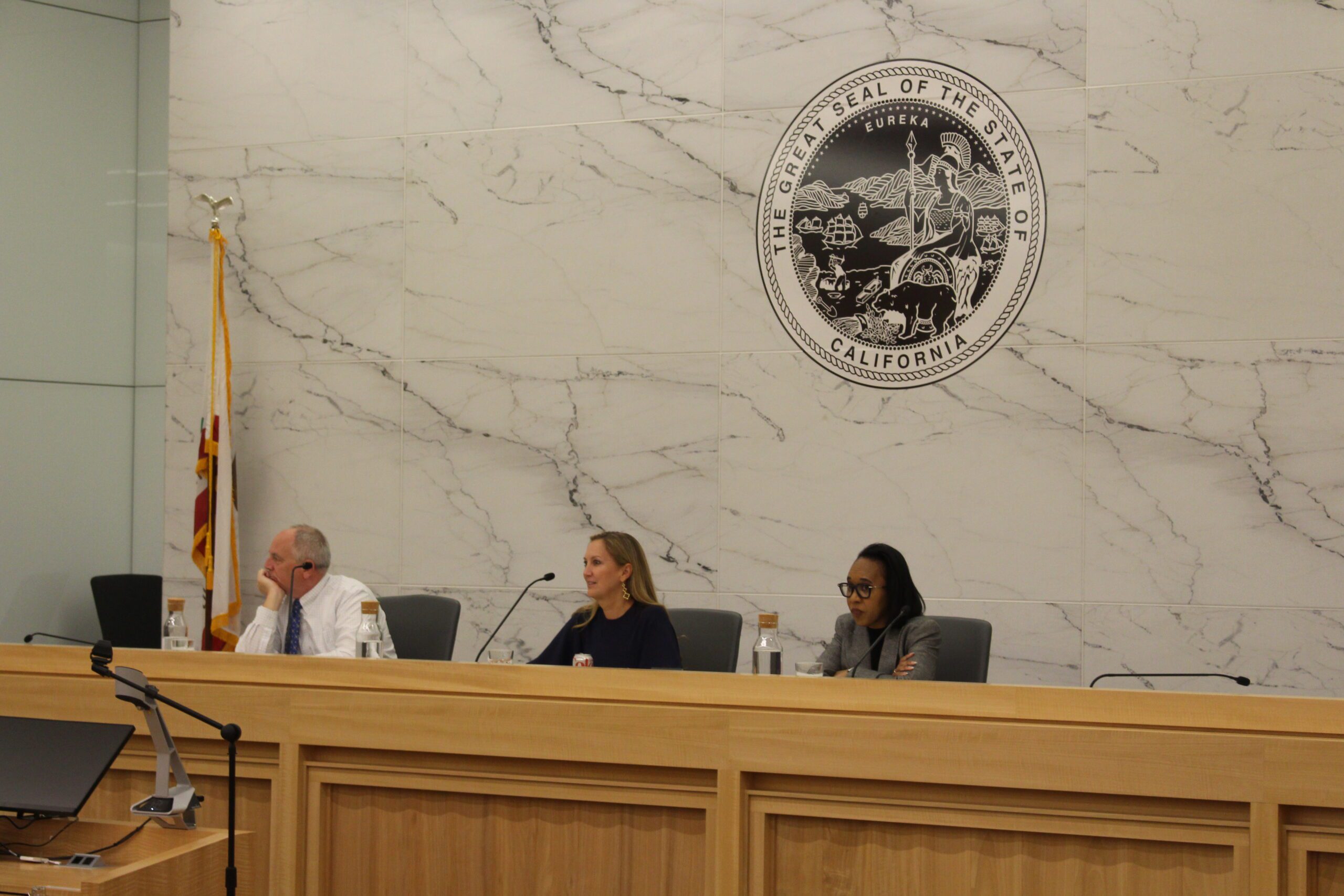Federal Circuit Judges Offer Rare Insights into High-Stakes Legal Decision-Making at UC Law SF

U.S. Federal Circuit Judges Todd M. Hughes, Kimberly Moore, and Tiffany Cunningham engage with UC Law SF students after a special session of oral arguments on campus, offering guidance on how future attorneys can sharpen their written and oral advocacy skills.
Judges from the U.S. Court of Appeals for the Federal Circuit shared insights into how they decide cases and gave career advice to students after a special session of live oral arguments at UC Law San Francisco.
A three-judge panel convened in UC Law SF’s Baxter Appellate Courtroom on Oct. 8 to hear arguments in four cases involving international trade, patent litigation, and a federal employment dispute. The judges grilled attorneys with probing questions and drilled down on key legal issues, shaping potential outcomes that could set important precedents.
After the arguments, law students posed questions to judges, asking how they prepare for live hearings, what they look for in written and oral arguments, and what advice they have for students looking to excel in the legal field.
“Be authentic to who you are,” Chief Federal Circuit Judge Kimberly Moore told students.
Moore explained that despite coming from different backgrounds, she and her colleagues each made history in the judiciary. Moore shared her journey from growing up in poverty to becoming one of the youngest federal judges. In 2007, she became the first sitting federal judge to give birth.
Moore was flanked by fellow Circuit Judges Todd M. Hughes and Tiffany Cunningham, who also broke barriers on the court. Hughes became the first openly gay federal appellate judge in 2013. Cunningham became the first Black judge to join the Federal Circuit in 2021.
Moore advised students: “Figure out what you want. Pursue it, and don’t ever let anyone tell you you can’t, because we’re proof that you can.”
The judges also offered guidance on how to approach oral arguments. Hughes said lawyers should view tough questions from a judge as an opportunity to defend their position and strengthen their case. Moore recommended that attorneys avoid harsh rhetoric and mudslinging and instead focus on the facts and the law. Cunningham urged students to approach oral arguments as a conversation with judges and to back up their statements.
“I don’t like imprecision,” Cunningham said. “I like it when people are precise and have support for what they’re saying.”
Students also benefitted from a Q&A session with the judges’ law clerks, who highlighted the unique learning opportunities that come with judicial clerkships. The clerks discussed how they get exposed a wide range of case types, learn how judges evaluate cases, and draft bench memos and opinions for the court.
The clerks recommended that those interested in pursuing Federal Circuit clerkships take foundational courses in subjects like administrative law and intellectual property and sharpen their legal skills in programs like Moot Court and appellate advocacy projects.